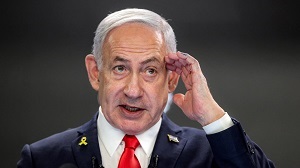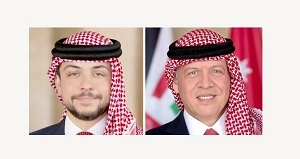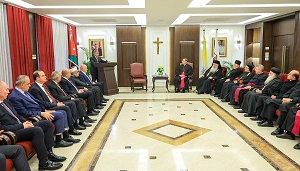To the dismay of secular and Westernized segments of Turkish society Erdogan once again proved his popularity. With 49.5 percent of the votes, he came very close to winning in the first round. The next round is scheduled for May 28 and Erdogan is now the clear favorite. It was not supposed to be that way. After 20 years in power, most polls showed him behind and his aura of invincibility seemed to be finally coming to a close.
With real inflation at triple digits, 50,000 people killed in an earthquake that exposed inept governance, and the opposition firmly united, economic and political conditions seemed ripe for change. Many pundits expected Kemal Kilicdaroglu, the candidate of the opposition, who ran a clean campaign focused on bread and butter issues without engaging in identity politics, to win with a comfortable margin. The euphoria in the opposition has now been replaced by gloom and doom.
To be sure, all is not over. Kilicdaroglu received a career high 44.9 percent in the first round. He still has a shot at registering an upset but the odds are against him. Erdogan’s religious nationalist alliance already secured a ruling majority in parliament. Kilicdaroglu has a losing streak against Erdogan. The disappointment of the demoralized opposition is therefore acute.
So what explains Erdogan’s enduring popularity? The short answer is his ability to polarize the country. Erdogan knew that his only chance of winning was to play the nationalism card. He did so by running a negative campaign, which took scaremongering to new levels.
Erdogan knew that his only chance of winning was to play the nationalism card. He did so by running a negative campaign, which took scaremongering to new levels.
His job was made easier when a Kurdish party decided to support Kilicdaroglu instead of fielding its own candidate. The Peoples’ Democracy Movement (HDP) is a legitimate political party that rejects violence. Yet, in the eyes of Turkish nationalists it is suspected of nurturing close ties with terrorism.
Erdogan’s disinformation campaign constantly showed Kurdish militants championing Kilicdaroglu’s candidacy on big screens during his political rallies in the Anatolian heartland. In addition to such polarizing nationalism, Erdogan also played the religion card masterfully. He consistently portrayed the secular opposition as pro-LGBT and against traditional family values.
Elections are not free and fair in Turkey. Having established a repressive regime and a strong hegemony over the media, Erdogan had clear advantages over his opponent. He did not have to steal the vote. He simply relied on his propaganda machine and his rock solid bond with the conservative masses.
Kilicdaroglu also probably made a mistake by relying too much on the economic downturn in formulating his campaign message. Yes, the Turkish economy is in bad shape with rampant inflation. But there were two problems with the assumption that the decline in purchasing power would trump national security threats and identity politics.
First, the opposition failed to understand that the manufactured national security threat — with warnings of Kurdish separatism just around the corner — resonated with Erdogan’s nationalist religious base. The Kurdish issue is probably the most polarizing problem in Turkish politics. The majority of Turks are concerned about the US supporting Kurdish separatism in Syria and in Turkey. Kilicdaroglu therefore took a calculated risk in seeking the support of Kurdish nationalism in Turkey. This was a sign of political courage and democratic maturity in the eyes of Turkish liberals such as myself. But liberals are a microscopically small community in Turkey compared to the crushing dominance of Turkish nationalism.
The second problem with emphasizing the economy over all other issues was the absence of a great depression scale economic crisis in the country. Rampant inflation is something Turks can endure as long as there is no massive unemployment and a major financial crisis. The Turkish economy is not in recession. Erdogan’s much-ridiculed economic model is based on economic growth at all cost. He was determined to avoid high-interest rates because a recession caused by high-interest rates would have probably ended Erdogan’s chances of re-election. Instead Erdogan went for a high-inflation and high-growth model where he can still engage in economic populism by raising wages, lowering the retirement age, and distributing financial credit to cronies.
Should Erdogan win, the next five years will see even more political repression and populist nationalism in the country. Relations with the West are unlikely to improve unless the economy hits the wall and Erdogan needs to resort to an IMF rescue package.
Should Erdogan win, the next five years will see even more political repression and populist nationalism in the country. Relations with the West are unlikely to improve unless the economy hits the wall and Erdogan needs to resort to an IMF rescue package. Despite all the challenges ahead, the opposition should not give up the fight. Erdogan is not likely to run for another term. He is tired and reportedly in poor health. Turkish democracy will continue to have a pulse as long as elections will continue to determine winners and losers.
Erdogan is once again proving very good at winning elections even when the odds are against him. He doesn’t need to “steal” the vote. The repressive political system, his populist nationalism, and the conservative masses work in his favor even when the economy suffers from his mismanagement.
Omer Taspinar is a professor at the National Defense University in Washington and Johns Hopkins University’s School of Advanced International Studies. Twitter: @otaspinar
Latest News
-
 ‘Israel’ launches major military operation in Jenin
‘Israel’ launches major military operation in Jenin
-
 ‘Israel’ recognizes Somaliland as sovereign state
‘Israel’ recognizes Somaliland as sovereign state
-
 Deputising for King, interior minister attends midnight Christmas mass in Bethlehem
Deputising for King, interior minister attends midnight Christmas mass in Bethlehem
-
 King, Crown Prince extend their Christmas greetings, New Year wishes
King, Crown Prince extend their Christmas greetings, New Year wishes
-
 Prime minister extends Christmas, New Year greetings to Christian community
Prime minister extends Christmas, New Year greetings to Christian community